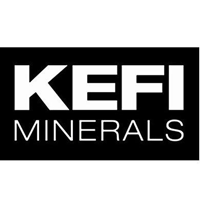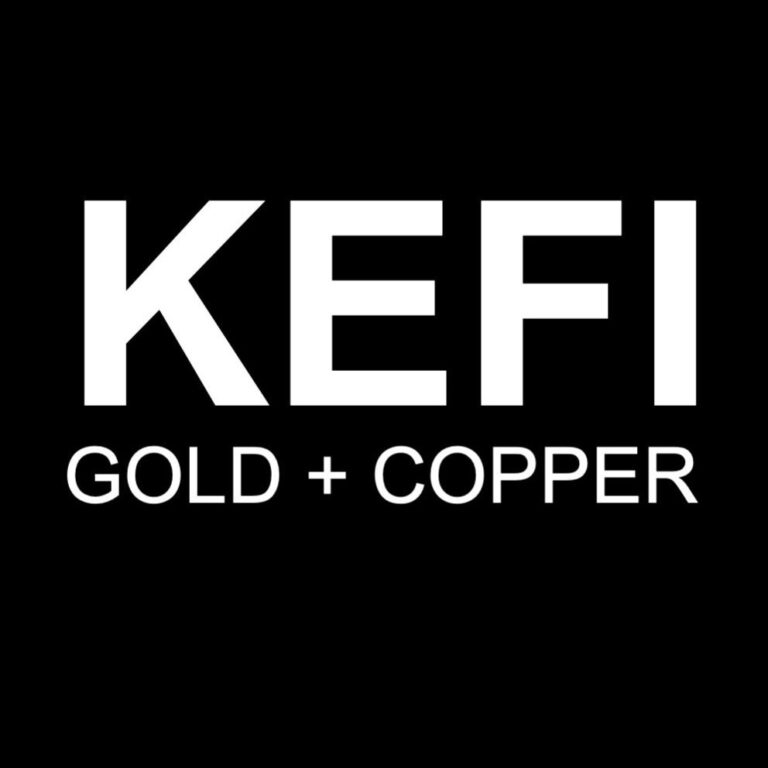KEFI Minerals Plc (LON: KEFI), the gold exploration and development company with projects in the Kingdom of Saudi Arabia and the Federal Democratic Republic of Ethiopia, announces its final results for the year ended 31 December 2016.
2016 HIGHLIGHTS
The robust economics of KEFI’s two development projects are demonstrated in the following table:
|
Tulu Kapi |
Jibal Qutman |
||
|
Project Stage |
Funding |
PEA |
|
|
Gold Production |
Ounces p.a. |
115,000 |
30,000 |
|
All-in Sustaining Costs (“AISC”) |
US$/oz |
777 |
600 |
|
Operating Margin |
US$/oz |
473 |
650 |
|
Net Operating Cash Flow |
US$ million p.a. |
55 |
19 |
|
Operating Margin |
% |
38% |
52% |
|
Initial Life-of-Mine Production |
Ounces |
980,000 |
139,000 |
|
Initial Capital Payback |
Years |
3 |
2 |
|
Initial Capital |
US$ million |
160 |
30 |
Notes:
The above parameters are based on a gold price of US$1,250/oz.
AISC is per the World Gold Council Standard. The AISC includes each project’s operating costs, Government royalties and sustaining capital but excludes financing costs and income taxes.
Tulu Kapi’s gold production and net operating cash flow are for the first eight years of gold production.
Tulu Kapi’s initial capital cost of US$160 million is based on the 2017 Definitive Feasibility Study Update (“2017 DFS Update”), reduced for contractually deferred payments and increased for non-Tulu Kapi costs during construction.
“PEA” means the Preliminary Economic Assessment completed by KEFI and announced on 8th March 2016.
The above metrics demonstrate:
· The AISC/oz place both projects in the bottom cost quartile of existing gold producers
· Strong operating margins above AISC provide substantial annual cash flows
· Both projects can comfortably debt-fund the majority of the development capital required
· Both projects rapidly repay the development capital
Tulu Kapi, Ethiopia
During 2016, KEFI concentrated on progressing the Tulu Kapi gold project (“Tulu Kapi”), Ethiopia’s first modern mine, and on upgrading its gold and copper exploration portfolio in the highly prospective Arabian-Nubian Shield (“ANS”). KEFI is targeting to commence development of Tulu Kapi in 2017 and open-pit gold production in 2019.
· Government of Ethiopia formally committed to invest US$20 million for equity in Tulu Kapi and, post-period, signed the Shareholder Agreement and other requisite documentation
· Project team refined the development plan and detailed mine plan, resulting in more robust metrics by incorporating feedback made by contractors, financiers, and partners to the 2015 Definitive Feasibility Study (“2015 DFS”), and, post period, all refinements to the 2015 DFS were incorporated into the 2017 Definitive Feasibility Study Update (“2017 DFS Update”) in preparation for financing
· Assessing three financing proposals built around contractors experienced in African mining following tightening of mining debt-finance sector and concerns of financiers regarding Ethiopian State of Emergency
· The projected open-pit cash flows indicate that the net cash build-up (after currently indicated financing costs) in the first three production years is US$65 million to US$265 million for the gold price range of US$1,100/oz to US$1,900/oz which prevailed during the past seven years. Significant value also expected from the contemplated underground mine beneath the Tulu Kapi open pit within extensions of the same ore body.
· Completed Preliminary Economic Assessment (“PEA”) confirming robust economics for the development of the underground mine – initial potential to increase production to >150,000 p.a. over four years whilst drilling to expand underground resources which are open in several directions.
· Post period, community resettlement programme was triggered paving the way to project development
· Post period, historical court claim pre-dating KEFI’s ownership of Tulu Kapi was reduced from US$12 million to c. US$600,000 which KEFI has appealed to the Supreme Court to eliminate altogether.
Gold & Minerals Ltd Joint Venture (“G&M”), Saudi Arabia
· Surface-sampling and geophysical studies identified large precious and base metals targets at Hawiah
· Strategic overhaul of licence applications undertaken by G&M across the whole of Saudi Arabia
· Post period, Mining Licence Application for proposed heap-leach gold mine at Jibal Qutman lodged with Saudi government for continuing discussion and review
· KEFI expects the authorities in Saudi Arabia to deregulate the minerals exploration sector in 2017 from which the Company is well-positioned to benefit
Corporate
· Completed several equity placings, raising a total of £5.6 million (before expenses)
· In preparation for Tulu Kapi development, Mr John Leach Finance Director became a fulltime executive and Mr Mark Wellesley-Wood, an experienced African mining operator, joined the Board as a Non-Executive Director assuming the role of Deputy Chairman
· Post period, completed £5.62 million fundraising (before expenses)
Harry Anagnostaras-Adams, Executive Chairman of KEFI Minerals Plc, said: “During 2016, we concentrated on progressing Tulu Kapi, Ethiopia’s first modern mine, and on upgrading our exploration portfolio in the highly-prospective Arabian-Nubian Shield supported by our strong partners in Ethiopia and Saudi Arabia. With the Ethiopian State of Emergency, conventional finance proposals were stalled in 2016 so we successfully responded by focusing our efforts on alternative financiers familiar with Africa, especially Ethiopia, and particularly on proposals designed around African-experienced gold project contractors. As a result, we are now assessing three proposals. At the same time, operational activities continued uninterrupted and we now have a development-ready mine, once the funding package is finalised. We look forward to commencing development in 2017 and open-pit gold production in 2019.
“This year we also strengthened our pipeline of ANS growth projects to complement our Tulu Kapi open-pit gold mine, including the Tulu Kapi underground mine and satellite deposits; our oxide gold mine at Jibal Qutman in Saudi Arabia; a large VHMS base metal target at Hawiah in Saudi Arabia; and further exploration prospects in the Arabian-Nubian Shield. With the robust economics of our key development projects, including the ability to payback initial capital within three years – and strong pipeline, we have a well-positioned foundation, great growth prospects and are confident of delivering shareholder value.”







































